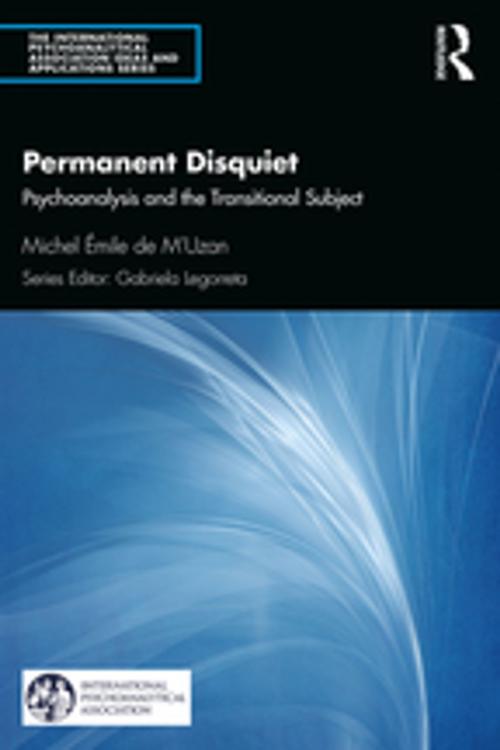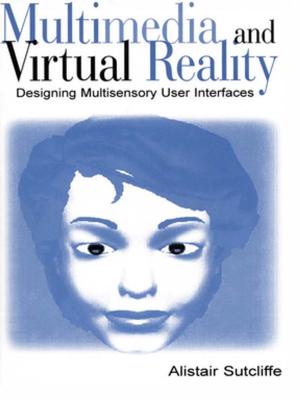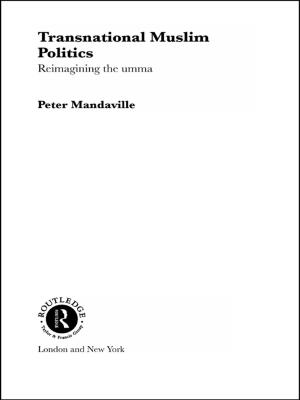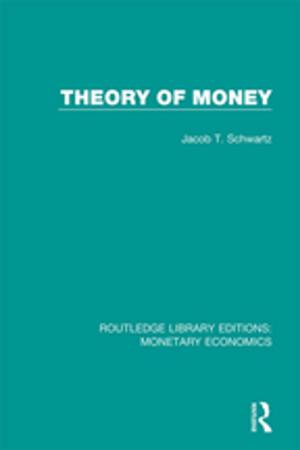Permanent Disquiet
Psychoanalysis and the Transitional Subject
Nonfiction, Health & Well Being, Psychology, Psychoanalysis, Mental Health| Author: | Michel De M'Uzan | ISBN: | 9780429514050 |
| Publisher: | Taylor and Francis | Publication: | May 16, 2019 |
| Imprint: | Routledge | Language: | English |
| Author: | Michel De M'Uzan |
| ISBN: | 9780429514050 |
| Publisher: | Taylor and Francis |
| Publication: | May 16, 2019 |
| Imprint: | Routledge |
| Language: | English |
Permanent Disquiet: Psychoanalysis and the Transitional Subject comprises the first English language translation of some of Michel Émile deM’Uzan’s key writings, alongside an invaluable glossary by Murielle Gagnebin of M’Uzan’s work. Together, they give a thorough overview of his key thinking.
The first part of the book sees de M’Uzan exploring the compatibility between creativity (particularly creative writing) and psychoanalytic practice and includes an exchange with Jean-Bertrand Pontalis. The second part focuses on M’Uzan’s key psychoanalytic concept – "permanent disquiet". Freud stated that the purpose of psychoanalysis was to transform neurotic suffering into common unhappiness. De M’Uzan built on this idea in his career and examined what it means for the clinical process for the analyst to step back, not to try and force happiness onto the patient, but instead to accept and allow them to find for themselves their own state of ‘permanent disquiet’. Drawing on Freud and Winnicott and including an invaluable glossary of de M’Uzan’s own psychoanalytic terms, this book brings de M’Uzan’s powerful theory to the anglophone psychoanalytic world for the first time.
Permanent Disquiet: Psychoanalysis and the Transitional Subject will appeal to psychoanalysts and psychoanalytic psychotherapists globally who are interested in French psychoanalytic thought.
Permanent Disquiet: Psychoanalysis and the Transitional Subject comprises the first English language translation of some of Michel Émile deM’Uzan’s key writings, alongside an invaluable glossary by Murielle Gagnebin of M’Uzan’s work. Together, they give a thorough overview of his key thinking.
The first part of the book sees de M’Uzan exploring the compatibility between creativity (particularly creative writing) and psychoanalytic practice and includes an exchange with Jean-Bertrand Pontalis. The second part focuses on M’Uzan’s key psychoanalytic concept – "permanent disquiet". Freud stated that the purpose of psychoanalysis was to transform neurotic suffering into common unhappiness. De M’Uzan built on this idea in his career and examined what it means for the clinical process for the analyst to step back, not to try and force happiness onto the patient, but instead to accept and allow them to find for themselves their own state of ‘permanent disquiet’. Drawing on Freud and Winnicott and including an invaluable glossary of de M’Uzan’s own psychoanalytic terms, this book brings de M’Uzan’s powerful theory to the anglophone psychoanalytic world for the first time.
Permanent Disquiet: Psychoanalysis and the Transitional Subject will appeal to psychoanalysts and psychoanalytic psychotherapists globally who are interested in French psychoanalytic thought.















